With the recent release of Super Mario 3D All-Stars, as well as 1993’s Super Mario All-Stars being added to Nintendo Switch Online’s library of Super Nintendo games, now is as good a time as any to make a definitive, undeniable, and unimpeachable ranked list of all the Mario games featured in those two collections. To be clear: All of these games are great, but some are certainly better than others. I’m sure nobody will disagree strongly with how this list is constructed and I will not receive any comments about it.
(Note: For the purposes of this list, I am not including Super Mario World, which was included in a re-release of Super Mario All-Stars in 1994. Since Mario World is not in the All-Stars compilation featured on NSO, I won’t be counting it, even though it’s my favorite Mario game of all time.)

7. Super Mario Bros. 2
Technically, this isn’t even really a Mario game. Still, Super Mario Bros. 2 introduced some interesting mechanics (including using vegetables as a weapon) and had some of the most creative level design in the entire franchise. Sure, it’s a bizarre platformer where some levels involve literally digging through dozens of sand layers or riding a magic carpet while avoiding flying foes with big forks. But Super Mario Bros. 2 has a lot to offer, and even accidentally brought a lot of series mainstays to the fold (e.g., Shy Guys and Birdo).
Why so low on this list? Frankly, it’s just not a very sharp platformer. Its strange level architecture often backfires, and its primary mechanic of picking things up and throwing them gets old after a while. That said, SMB2 is a solid game that’s worth at least the old college try.
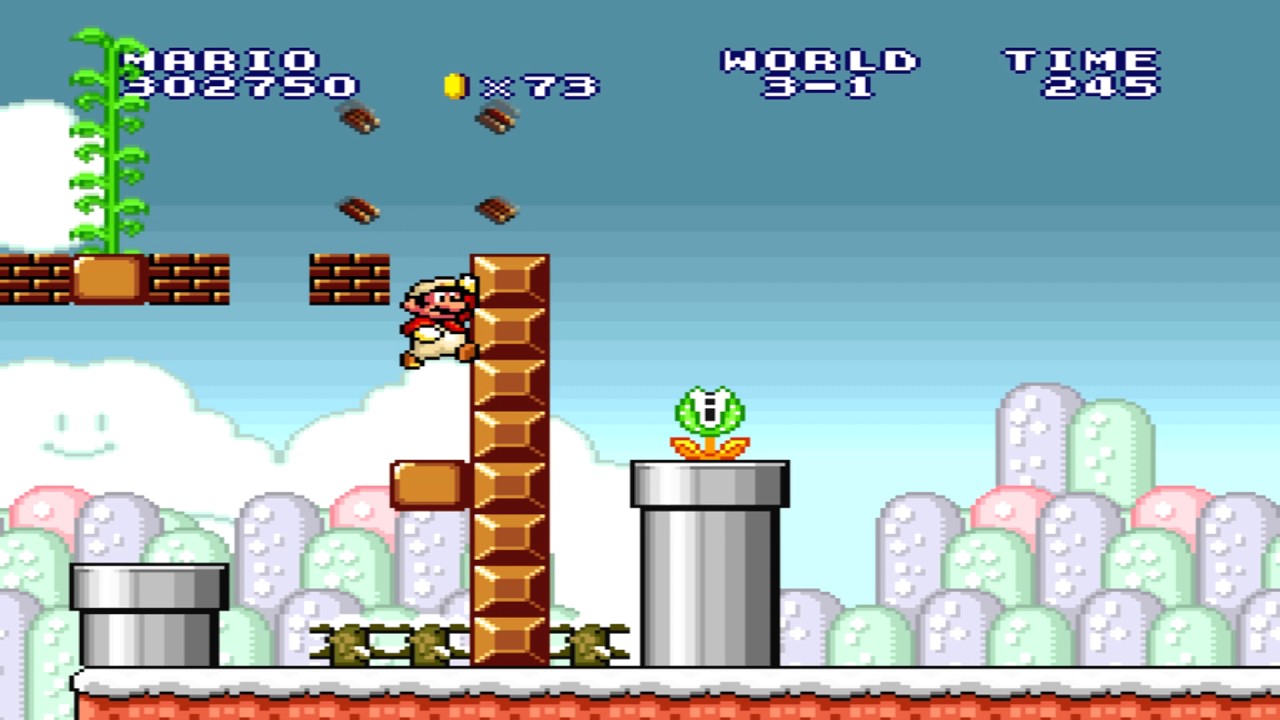 6. Super Mario Bros.: The Lost Levels
6. Super Mario Bros.: The Lost Levels
There’s a timeline where The Lost Levels, also known as the actual Super Mario Bros. 2 in Japan, becomes the standard for Mario games forever. The concept is simple: Take the original Super Mario Bros., keep a lot of the same assets and gameplay mechanics, and then subvert all expectations of a Mario game.
Virtually everything about The Lost Levels is meant to overturn your previous perceptions of the mustachioed plumber’s adventures. One of the first question blocks you see contains a poison mushroom that kills Mario. Many of the secrets you’d look for in this game may actually lead you astray, including one moment where you think you’ve located a pipe that will allow you to skip several worlds, but it actually sends you back to 1-1. In addition, some levels can’t be completed without hitting invisible blocks, some platforming challenges require you to jump forward but then fall backward (this is as difficult as it sounds), and some castles even include TWO Bowsers!
Is this game frustrating? Yes. Is it also fascinating? Absolutely. It’s not the best NES-era Mario game, and it’s certainly not a walk in the park, but The Lost Levels is probably my favorite Mario game to study and analyze, as there’s so much weird content and so many interesting game design choices. A must-play for people who (like me) play games for research as much as they play for fun.
5. Super Mario Sunshine
Somehow, Super Mario Sunshine is both better and worse than I remember. In replaying it recently, I was astonished by how smooth the movement felt for a 2002 game, and its art style is as charming and vibrant as ever. Still, the parts of the game that irked me before — the (at times) janky camera, the grind of the blue coin economy, how often levels are designed for precise movements with imprecise controls — feel worse than they did when I first played Sunshine on the GameCube.
It’s a puzzling game in many ways. It marks one of Nintendo’s most creative projects up to that point, yet the title had a rushed development process, so many of its ideas felt half-baked. Meanwhile, Sunshine’s attempts to tell a meaningful narrative, while a welcome endeavor in theory, produced some of the worst voice-acting imaginable and awkward cutscenes that provide more exposition than anyone asked for.
Despite all of its faults, though, I really like Mario Sunshine. I adore its hub world (Delfino Plaza is easily the best hub area in any 3D Mario game), I love how connected everything feels, and I actually enjoy the FLUDD controls more than most. Playing through Sunshine again was delightful, even if I have no intention of completing it, as it might have the worst post-game content of any Mario title.
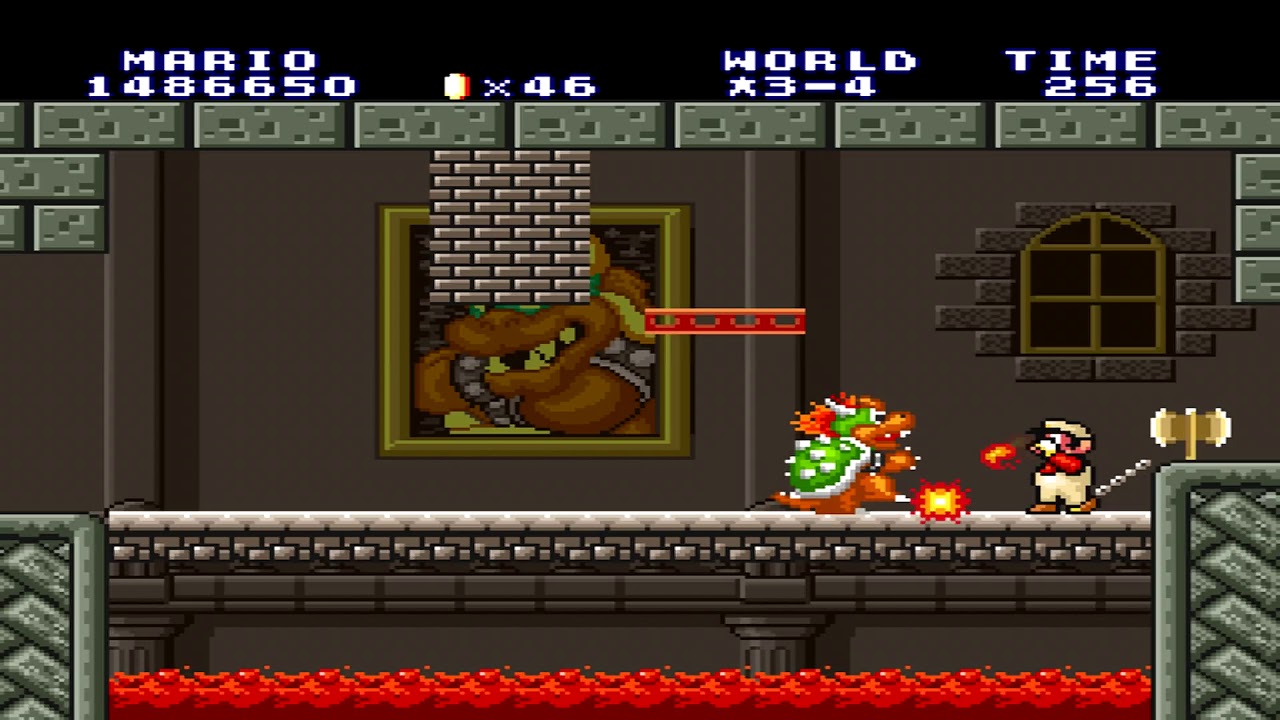
4. Super Mario Bros.
The original Super Mario Bros. isn’t as high as it is here merely out of respect; it remains one of the most thoroughly enjoyable 2D platformers out there. While the jumping controls aren’t quite as refined as they are in later Mario side-scrollers, SMB’s level design and difficulty curve are still excellent. This is a game that simply never gets old.
I’m not sure there’s much else I can really say about Super Mario Bros. that hasn’t been said a billion times elsewhere. But, I’d like to add this: Regardless of where it ranks on your personal list of Mario games (or games in general), the original Super Mario Bros. is by far the most important video game ever made. It raised the bar for the medium in so many ways and established so many gaming standards (some of which are not quite as obvious as one may think) that still inform development to this day. The fact that it’s still a genuinely fun and playable game all these years later is a testament to just how magical it was from the start.
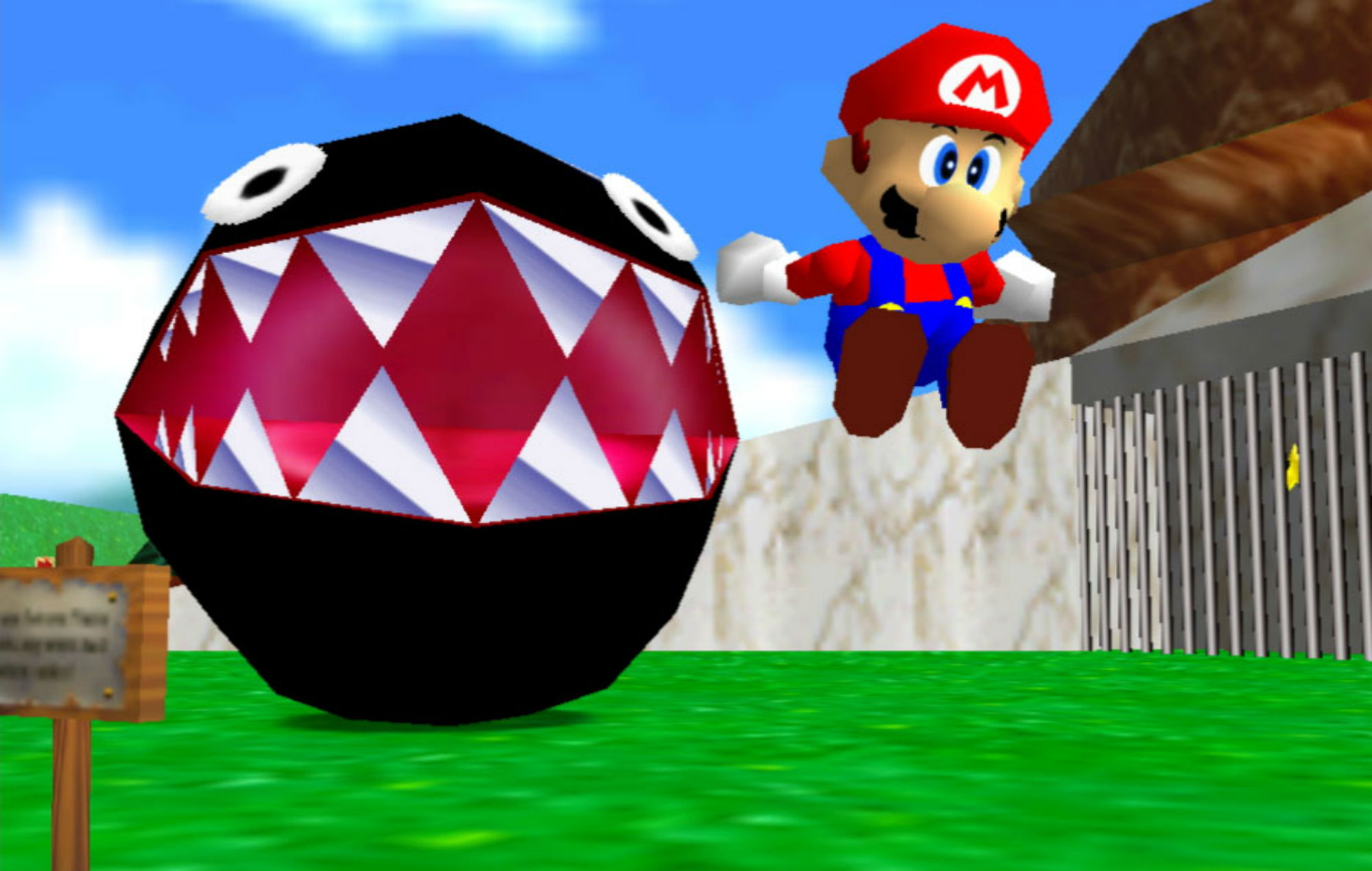
3. Super Mario 64
Super Mario 64 also exists in the pantheon of video game excellence, as it pioneered so many of the tenets of 3D console gaming that continue to inspire creators to this day. It’s also messy and confounding if you play it now.
After replaying it for the fourth (maybe fifth?) time, most recently on Switch, I’ve come to two conclusions:
1). I will always enjoy so much about Mario 64, including its open-ended level design, jaunty soundtrack, and lovable hub world.
2). If I played this game for the very first time in 2020, I would have a very hard time seeing what the big deal is.
Honestly, so much of Mario 64 still works, but when things don’t work, it’s glaring. The camera is mostly fine, but when you can’t get the exact angle you want (or even something close to it), some levels become nearly impossible to play. The movement mechanics are usually OK, but every now and then you’ll experience an untimely demise merely because the bottom of Mario’s foot hit a wall when it shouldn’t have, bouncing the mustachioed plumber off said wall and into an abyss. Obviously, almost all of these issues are reflective of the time of this game’s release, but they still harm the experience.
That said, Super Mario 64 is such a joyous experience. The design of every sub-world is still magnificent, as even the most linear tasks feel like they have an open-ended nature to them. The sheer variety of challenges means players can progress through the story in virtually any way they like, and no task is fundamentally too easy or too hard; every star feels earned.
Honestly, this was the game in the Mario 3D All-Stars pack that probably needed an update the most (Sunshine also could have used some tweaking, but maybe not as much). If you fix the camera and smooth out some of the rough edges, Mario 64 would hold up tremendously well, as the skeleton of the game (as well as its spritely presentation) is good enough on its own. Still, the fact that this game existed when I was five years old is remarkable in and of itself, and I continue to find new delights every time I revisit that blocky old castle.
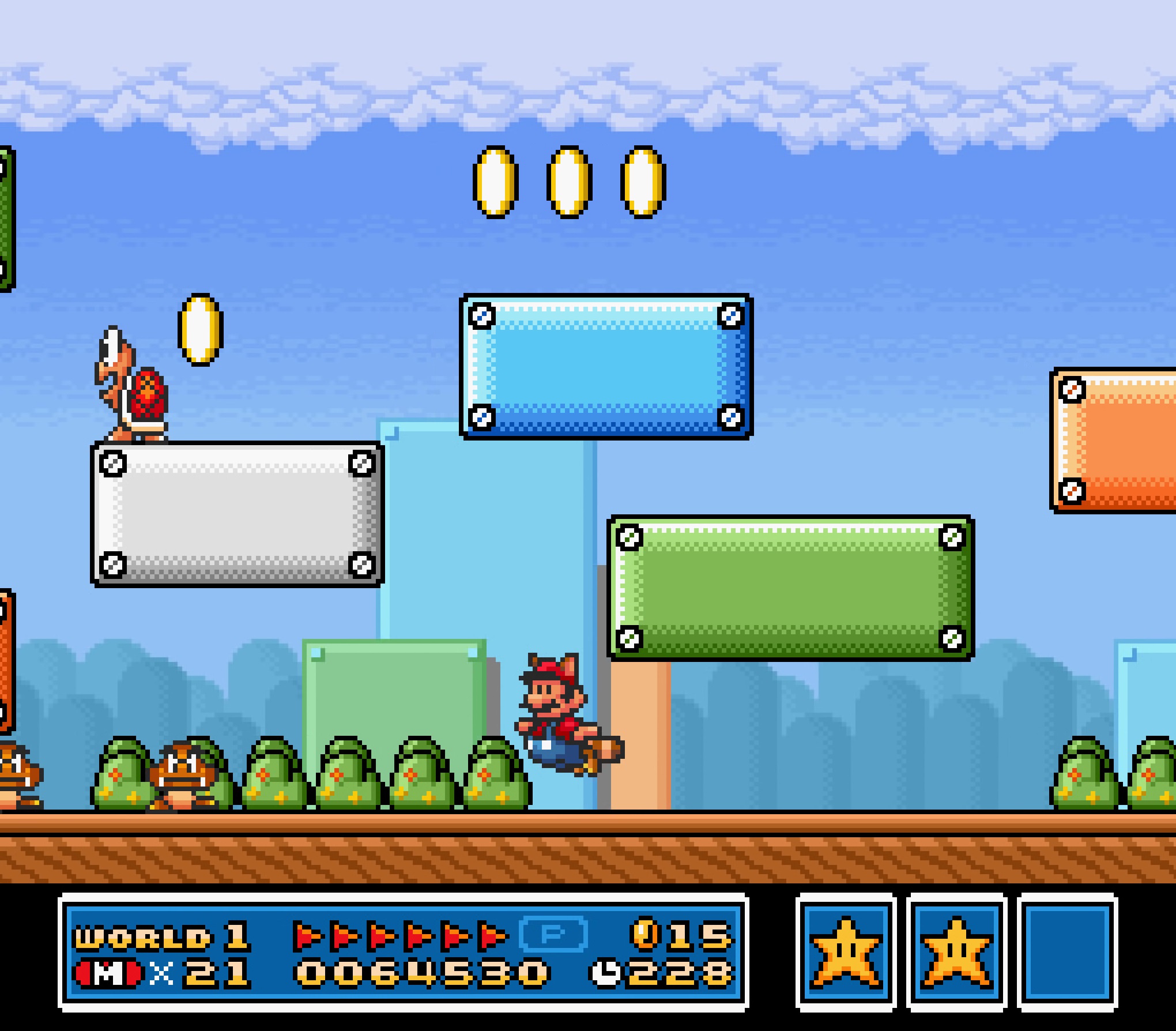
2. Super Mario Bros. 3
There’s really only so much I (or anyone) can say about Super Mario Bros. 3 at this point. It’s the best NES game, the second-best 2D Mario game, and a game I have played on nearly every Nintendo platform I’ve owned in some form. It revolutionized what the franchise meant, built upon the previous titles’ greatest strengths, and presented some of the most fun and brilliant level design imaginable. The game is still a masterpiece, and would be number one on this list if not for…
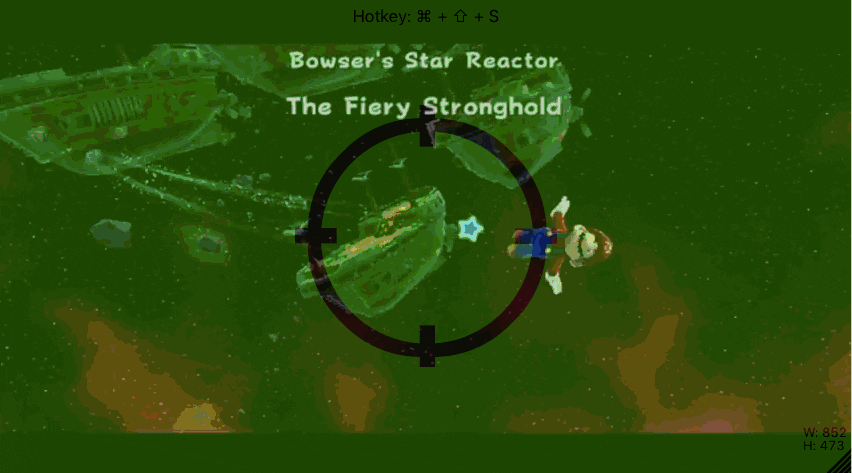
1. Super Mario Galaxy
Super Mario Galaxy isn’t just the best 3D platformer of all time; it’s a game that transcends the genre, the franchise, and even Nintendo overall. The weightiness of Mario’s leaps into space and the subtle yet powerful gravitational pull of each planet create a feeling of constant wonder and surprise, all underscored by one of the best soundtracks in the history of the medium and some of wildest art direction in any Nintendo product (which is certainly saying something).
I’ve written before about how much I love Super Mario Galaxy and how it perfectly meshes 3D mechanics and spaces with the hand-crafted feelings of Mario’s 2D adventures. Those same feelings remain while playing on the Switch (which has surprisingly great controls in handheld mode). As I’ve gone back to collect all the stars in the universe once again, I’m still in awe of everything this game has to offer, from the windy rails of the Gusty Garden Galaxy to the dreamlike aura of the Toy Time Galaxy. An unquestionable masterpiece.
Sam has been playing video games since his earliest years and has been writing about them since 2016. He’s a big fan of Nintendo games and complaining about The Last of Us Part II. You either agree wholeheartedly with his opinions or despise them. There is no in between.
A lifelong New Yorker, Sam views gaming as far more than a silly little pastime, and hopes though critical analysis and in-depth reviews to better understand the medium's artistic merit.
Twitter: @sam_martinelli.


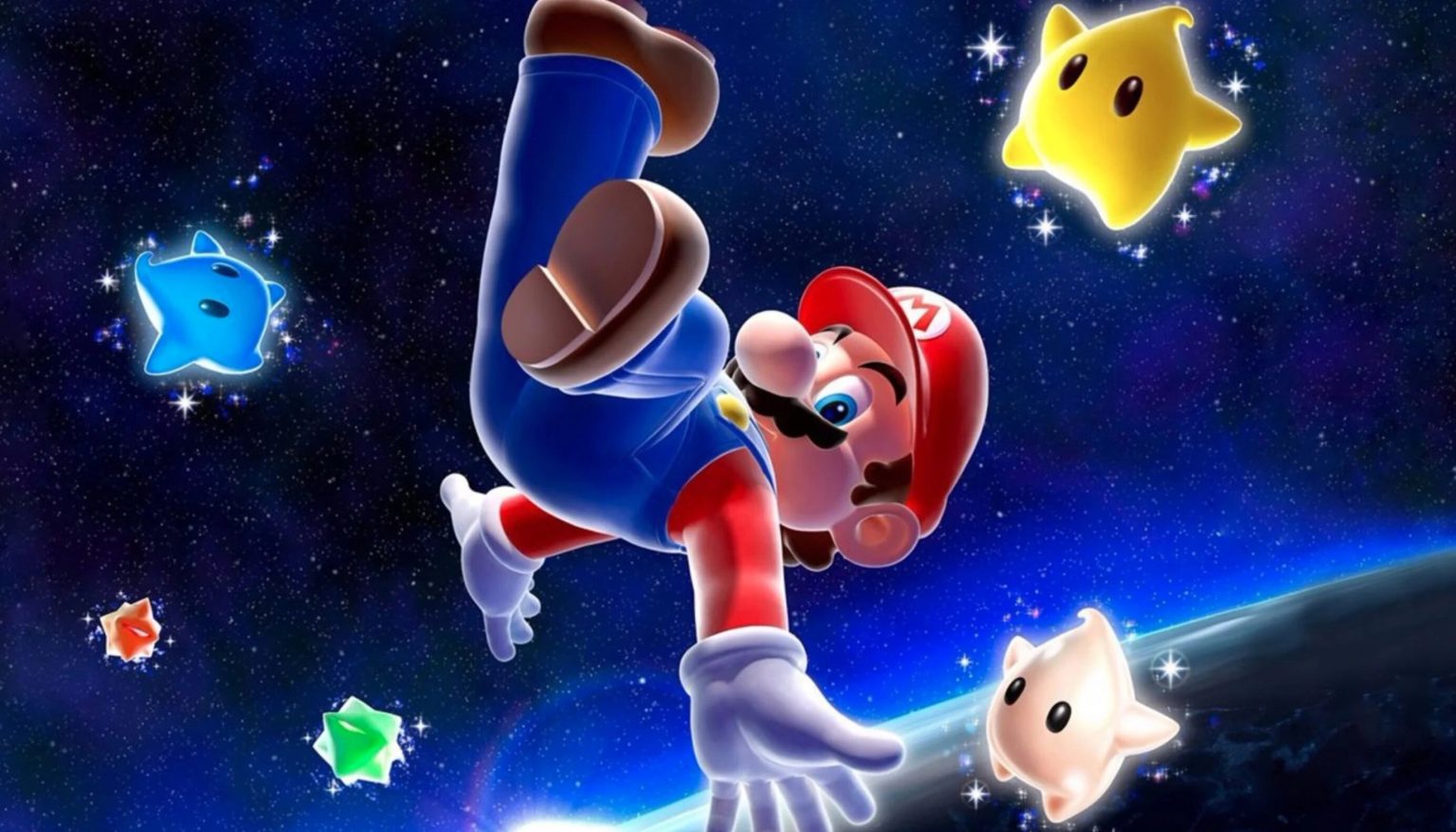
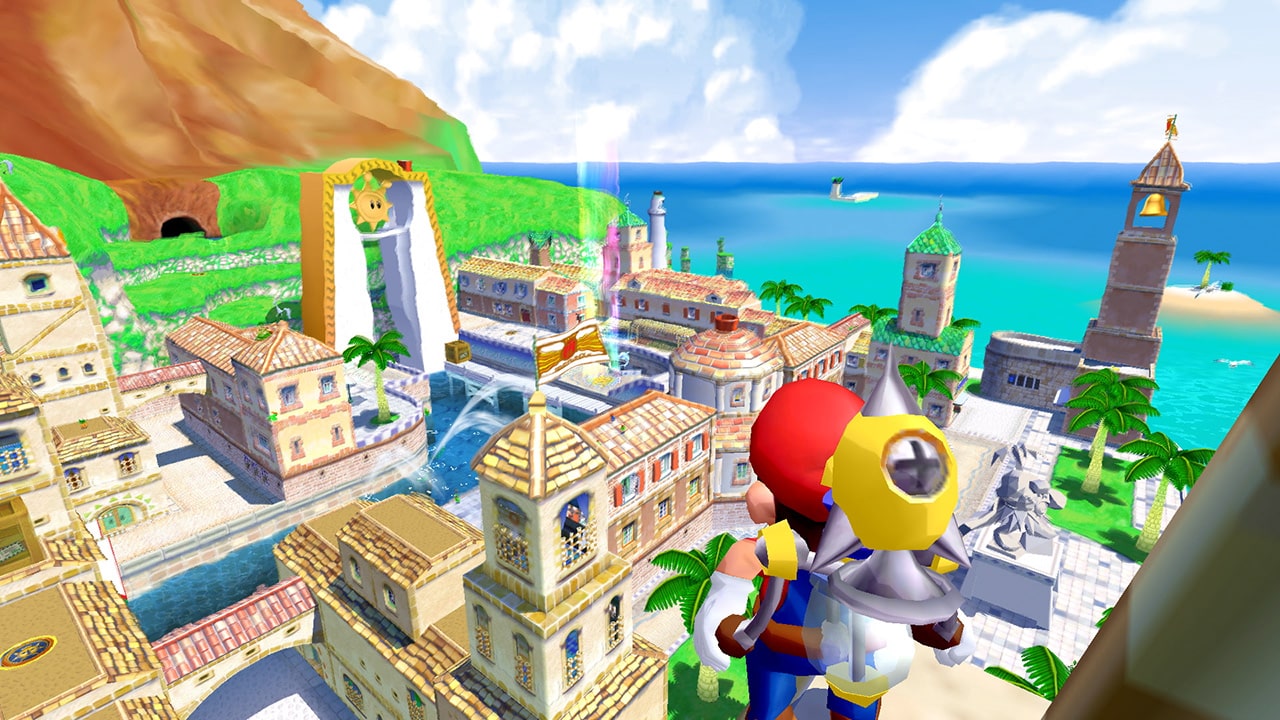





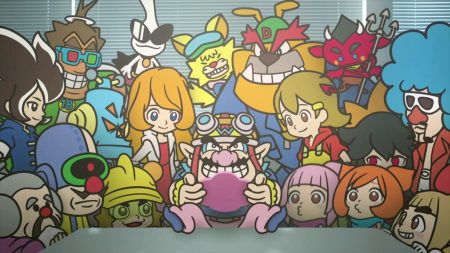
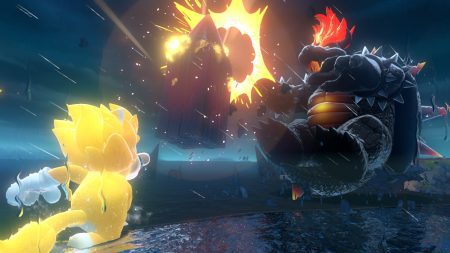

2 Comments
I agree with your top list. Super Mario Galaxy is also my favorite Super Mario game too and I am glad that game is considered as one of the best games of all time, because it deserves it!
Super Mario Sunshine should be moved to #2. Everything else is fine.